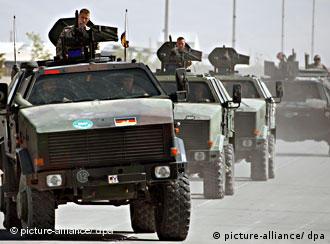Forostar
Ancient Mariner
Re: More NATO forces needed for south Afghanistan
Well, I understand and believe believe that. I am not a hippy who is against all Americans. I wish more countries would help other nations as much as they have done. My sharp comments towards them were mostly meant to bring more balance in the total picture, but I surely realize their value.
I'm afraid I have understood the term French Foreign Legion in a wrong way. My apologies for the ignorance from my part.
Deano said:There are so many good people here...
Well, I understand and believe believe that. I am not a hippy who is against all Americans. I wish more countries would help other nations as much as they have done. My sharp comments towards them were mostly meant to bring more balance in the total picture, but I surely realize their value.
Deano said:To elaborate on the previous post; I DO know that US Marines in Kandahar would make a huge difference, but I also wondered about the possibility of the French Foreign Legion being sent there. This is a very strong fighting force and I think would do very well there or anywhere else they are sent. I do not quite understand France's stance with employing so many other nationalities within one of their most elite fighting forces but that is not for me to pass judgment on. If it works for them, then more power to them. I have praised and welcome any nations help in this struggle.
I'm afraid I have understood the term French Foreign Legion in a wrong way. My apologies for the ignorance from my part.




